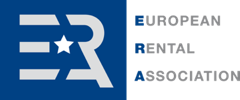
Sustainability is a critical topic for most business sectors today and is firmly on the agenda for
the majority of boards. Yet the proliferation of legislation and voluntary standards, together with
the complexity of subjects such as climate change, can make it a challenging area to engage
with. Companies and managers are faced with an increasing challenge to both keep abreast of
their obligations, as well as identify opportunities for growth and value creation as the transition
economy emerges.
This challenge is particularly acute in the equipment rental industry. The industry is in the
process of energy transition and decarbonisation while grappling with the challenges of
immature energy systems and uncertainties around future technology, economics and
regulation. In addition, the equipment rental industry sits downstream from extensive global
supply chains which bring their own issues in supplier management, whether in human rights,
sustainable resource extraction or other areas of responsible business conduct.
For forward-thinking companies, however, the opportunities of sustainability can be even greater
than the challenges. When clients and regulators are demanding greater transparency and
action, it is the early adopters and fast followers who are best able to respond, reduce
compliance risk and position themselves to secure new business with major customers. At the
same time, these companies build sustainability credentials that satisfy investors that are
increasingly driven by sustainability, as well as helping them to engage with and retain a more
productive workforce.
Furthermore, the equipment rental model itself is inherently a more sustainable business model
than the “owner-operator” model, offering substantial efficiency savings by better utilising
valuable equipment assets. This is a fact that can be leveraged by forward-thinking rental
companies to further build and communicate their sustainable credentials. Indeed, the EU’s
Circular Economy Action Plan 1 specifically aims to encourage and incentivise the product-as-a-
service business model.
There are also clear opportunities for rental companies to further develop their business models,
and to support customers who require new services in order to improve sustainability. For
example, rental companies may be able to advise customers on integrating electric equipment
into their work programme to allow recharging, or to provide charging facilities or access to
biofuels as additional services.
In the light of these trends and opportunities in the equipment rental industry, this report was
commissioned by the European Rental Association (ERA) to assist parties in the equipment
rental sector to engage further with the sustainability agenda, no matter what their scale. It
draws together a range of accessible best practice to help equipment manufacturers, rental
companies, and others active in the European equipment rental sector reach greater levels of
maturity and unlock the value of sustainability on a practical level – for themselves, for their
clients, and for the wider world.
